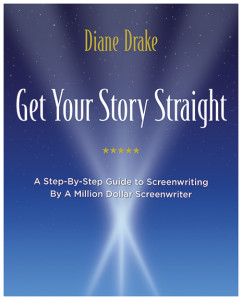 THREE ESSENTIAL QUESTIONS TO ASK YOURSELF BEFORE YOU START WRITING YOUR NEXT SCRIPT
THREE ESSENTIAL QUESTIONS TO ASK YOURSELF BEFORE YOU START WRITING YOUR NEXT SCRIPT
In today’s marketplace, the critical importance of a strong log line cannot be over-emphasized. You need to be able to boil your idea down to its essence, i.e., two to three sentences at most, and other people need to be able to grasp the movie in that description, and ideally be intrigued by its creative possibilities. If you can’t do this and you’re trying to write a major motion picture, I’d maintain that not only will you have trouble marketing it, but also that you haven’t really nailed your story yet.
The second, more frequently overlooked, yet equally important component to creating a powerful log line, (and thus a powerful script), is: What makes this story somehow fresh? What about it is something we haven’t already seen?
Anybody who’s been anywhere near a multiplex in recent years knows that studios are continuing to rely ever more heavily on franchises and brands, to the point of now producing remakes– oops, I mean “reboots”– of franchises which seem to have barely disappeared from the theatres in the first place, (SPIDERMAN and “THE DARK KNIGHT” are the latest examples.) Last year set the record for the most sequels ever made. http://blog.moviefone.com/2011/02/15/2011-movie-sequels/ Familiarity rules. Which is terrific news, if you happen to be Hasbro or Marvel.
But an original by definition can’t be a brand, (unless of course it’s an original by Judd Apatow, Seth MacFarlane, etc. who are brands unto themselves). So, what’s someone who’s not a toy manufacturer, a comic book publisher or an already mega-successful writer/producer/director to do? I’d argue that for your work to stand out, your original script needs to be genuinely that — ORIGINAL. If all a studio wants is to produce a clone of what’s already been done, which admittedly still happens plenty frequently, that writing gig is going to go to the people who are already on the “inside” of the business, to the short list of steadily working writers who’ve got assignments all over town. So, while I know it might seem counter-intuitive on its face, especially in this play-it-safe, re-tread climate, I believe the best way for you to generate interest and thus sell an original spec script is to come up with something that somehow we haven’t seen before. Notice I said, “somehow”. It is obviously not possible to come up with something literally entirely original, and if even you could, I’d wager nobody would buy it. What you’re aiming for is to create some element of topspin which makes your story feel fresh and somehow novel. And ideally this element of novelty will be reflected in your log line.
Looking back, I realize that what made the of idea of WHAT WOMEN WANT feel novel and interesting was actually the subtracting of something. “A man who can read people’s minds”, doesn’t sound like much of a movie. But if you tweak it, “A man who can read WOMEN’S minds”, it’s suddenly a lot more intriguing. It suggests a whole new set of possibilities, among them, “he now knows ‘what women want'”. And, thus it became an idea not only worth exploring, but also one which we hadn’t seen before in quite that way.
Finally, remember that just because we haven’t seen an idea before doesn’t necessarily mean it’s a good one. Tropes are tropes for a reason and the mash-up “Abraham Lincoln, Vampire Hunter” strikes me as a rather desperate stab at creating novelty. But I’ve admittedly not seen the movie, so perhaps I’m wrong. Regardless, before you go to draft and invest many months (if not years) of precious time and effort in crafting a screenplay, make sure you can honestly answer at least these three essential questions:
1. What’s the big idea in 2-3 sentences or less?
2. What about this idea have audiences not seen this way before?
3. Does whatever aspect of my story which makes it feel fresh and original clearly come across in my log line? (The optimum answer here would be: yes. )
If you can’t do that yet, don’t despair. It just means you haven’t hit paydirt yet. Keep working it, keep exploring and raising the bar on yourself until you can nail these elements down in a way which will help make the script you ultimately write “be so good they can’t ignore you”.


This is so interesting…and, so important to know when you are trying to come up with an original idea. Great points on the writing!
Bam. ‘Nuf said. Thanks.